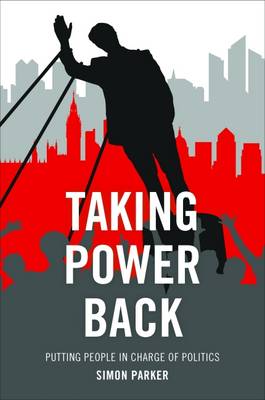19%OFF

Stock image for illustration purposes only - book cover, edition or condition may vary.
Taking Power Back: Putting People in Charge of Politics
Simon Parker
€ 20.99
€ 16.94
FREE Delivery in Ireland
Description for Taking Power Back: Putting People in Charge of Politics
Paperback. .
One of the key issues of our time is the question of where power and governance should lie. In Taking power back Simon Parker makes a powerful case for giving power away: centralization, breeds distrust among citizens who are taking matters into their own hands. Offering policy recommendations and practical suggestions, Parker argues for a new kind of politics, one that can fully unleash society's creative potential.
One of the key issues of our time is the question of where power and governance should lie. In Taking power back Simon Parker makes a powerful case for giving power away: centralization, breeds distrust among citizens who are taking matters into their own hands. Offering policy recommendations and practical suggestions, Parker argues for a new kind of politics, one that can fully unleash society's creative potential.
Product Details
Publisher
Policy Press
Format
Paperback
Publication date
2015
Condition
New
Number of Pages
208
Place of Publication
Bristol, United Kingdom
ISBN
9781447326878
SKU
V9781447326878
Shipping Time
Usually ships in 4 to 8 working days
Ref
99-1
About Simon Parker
Simon Parker is a leading voice on decentralisation and democracy. As director of the local government think tank NLGN, he has worked alongside many of the UK's leading councils to inspire new approaches to urban governance and public service delivery. He started his career as a journalist at the Guardian and has since held senior positions at Demos and the ... Read more
Reviews for Taking Power Back: Putting People in Charge of Politics
Simon Parker offers substantive examples from the UK and elsewhere about how to achieve a lasting shift of power to cities, towns and local neighbourhoods. It is an ambitious but persuasive programme. Peter Riddell, Director of the Institute for Government Thought provoking insights of what needs to change within our political and public services architecture, useful and challenging ... Read more
